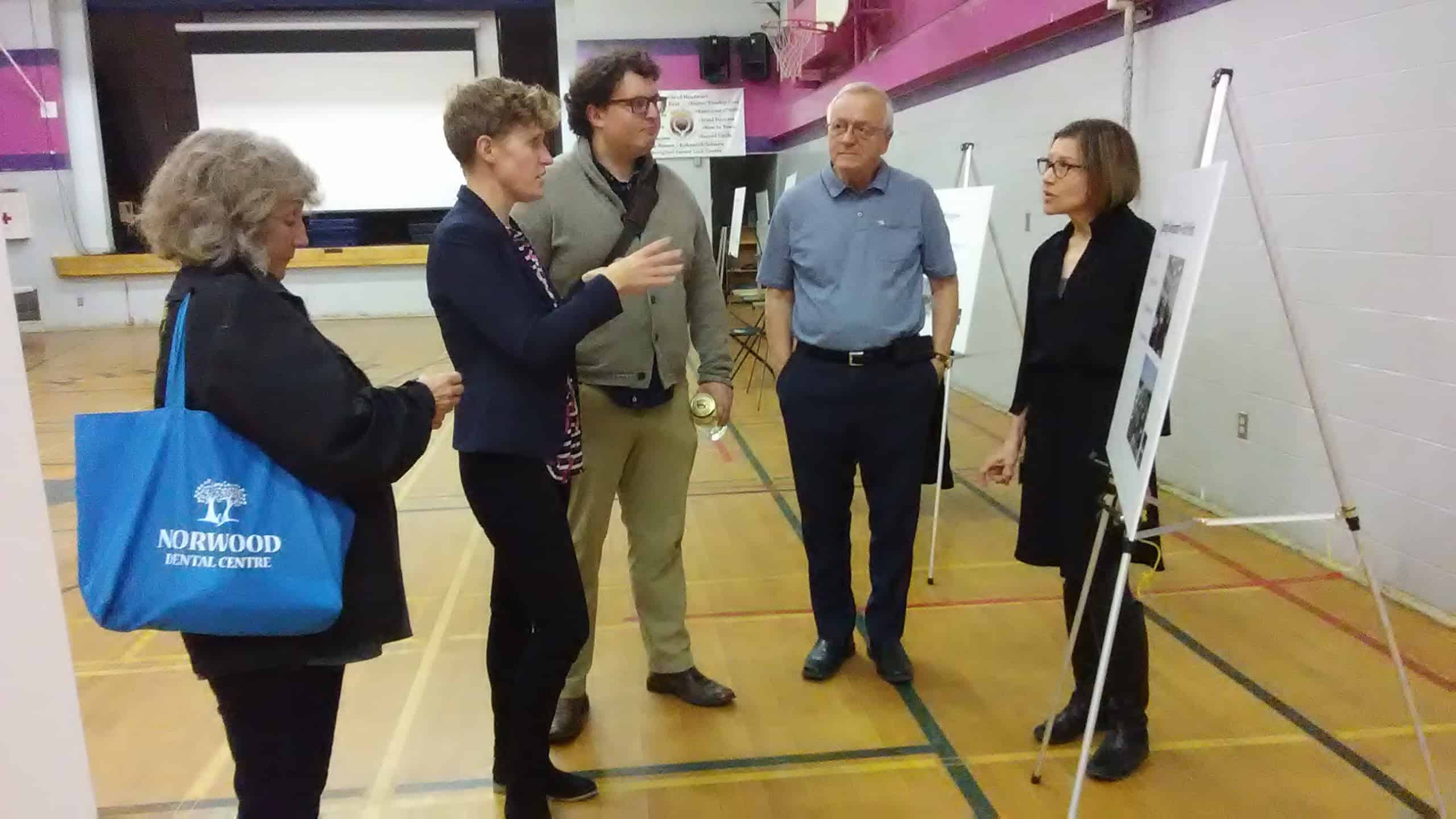City asks community for revitalization input
On Oct. 17, City staff held an open house at Parkdale School to present the core components of a funding report for submission to city council as it prepares for the next four-year budget cycle.
Residents of neighbourhoods around 118 Avenue favoured the proposed appointment of a resource person in the community to liaise as revitalization enters a new phase. They’d also prefer that future revitalization dollars are spread equitably among neighbourhoods.
“What we heard from the community is that they want to see funding sustained and they want funding to be more equitably shared,” said Deanne Patsula, senior planner with the City. “Rather than a big lump sum, [community] preference is to have a base level of funding and allocate further funding to neighbourhoods based on population.”
In June, city council shifted focus and funding away from the Avenue and Jasper Place revitalization initiatives and toward the next in line for revitalization: Balwin/Belvedere and Inglewood. But after calls from community leaders to not wind down support, council asked administration to work with the communities to come up with transition strategies.
Since then, City staff have fast-tracked three community meetings, as well as conversations with community leaders to discover residents’ priorities for the eight neighbourhoods in the Alberta Avenue revitalization area. They got a range of responses.
“We took from where the bulk of the community responses were, and put that into our informational report to council,” she said.
At the October open house, community members were invited to indicate their approval or non-approval for various options in five areas: having resource staff in place; program funding; collective impact across various social strata; developing performance measures; and program continuation over the long term.
Joachim Holtz, executive director of the Alberta Avenue Business Association, said efforts by the City to include the community in forging a continued revitalization plan were well-received.
“The stage we’re at now, it’s easier to interpret and understand the options, for us the stakeholders and for [city] council. This is a clear step forward,” said Holtz.
Mike Kunicki, manager of The Carrot Coffeehouse, said funding needs to continue to not jeopardize what’s been accomplished over the last decade of revitalization.
“From the Headless Halloween party at The Carrot to our K Days pancake breakfast, there’s a lot of funding and strategy that [came] from our revitalization project coordinator,” said Kunicki. “Judy Allan helped us so much for navigating through all that.”
Judy Allan, who was the Avenue Initiative coordinator, retired this summer. Her highly valued position has not been filled.
Feedback from the October open house was integrated into administration’s final report, which will go before city council on Nov 6 or 7. The public is invited to attend the council meeting, but cannot make any presentations. Citizens could, however, speak at the Oct. 29 executive committee meeting.
To see the report, go to the Executive Committee Agenda and scroll down to the link on Item 6.6.
City council will make a final decision on revitalization spending and resource allocation for Alberta Avenue and area during the 2019 budget process.
Featured Image: Deanne Patsula, city planner (far right), speaks with attendees. From left: Colyn O’Reilly, Janis Irwin, Mike Kunicki, and Joachim Holtz. | Kate Wilson







